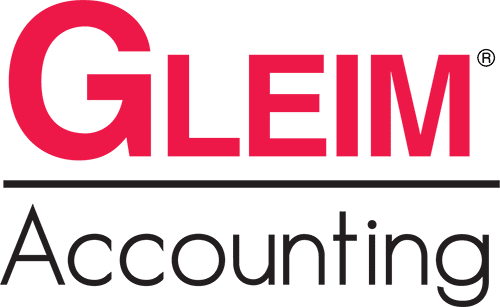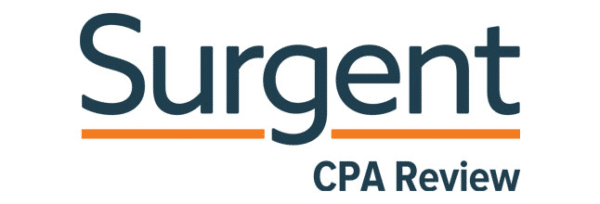CPA Exam Maven
Pass Your Exam, Boost Your Career!
Sign up for the latest info you need to earn your CPA license and navigate your accounting career!


Welcome to CPAExamMaven!
I’m CPA and former Big-4 Senior Manager. I remember how difficult it was to get honest advice on how to pass the CPA exam and search for the right CPA review course.
Passing the CPA exam doesn’t have to be a mystery, that’s why I started this website: a 100% FREE resource dedicated to helping you prepare for and pass CPA exam on your first try.
Featured on





Compare the top cpa review courses
Best Overall

Becker CPA Review is endorsed by all of the Big 4 accounting firms and a network of over 2,000 CPA firms, alliances, government agencies and universities around the U.S.
Best Value

Gleim CPA Review offers access to over 11,300 multiple choice questions (MCQs) and simulations and is highly affordable…
Best Efficient Learning

Surgent CPA Review offers cutting edge technology designed to streamline your exam prep as much as possible.
your trusted exam source to:
Learn How to Become a CPA!
Learn How to Pass the CPA Exam!
Find a CPA Review Course!
Save $1,000’s with a Course Discount!
what people are saying

Colin and his CPA Exam Maven site offered the best and most candid advice I could find on the different CPA exam courses I was considering. I really appreciated the personal touch he offers to help folks choose the right course.
– Taylor

I’m so thankful that I found this site when I did! With a family and a day job I just couldn’t find the time to research courses. He even took time out of his work schedule to answer my questions over the phone! I mean who does that?!
– Bridgette

Colin is the man! He’s a practicing CPA and consultant so he knows his stuff. My CPA exam prep was a breeze thanks to Colin’s help and personal advice.
– Aarav

I wasn’t sure which course to go with, but the detailed course reviews I found here made everything much easier to figure out. Now I just need to pass the exam!
– Chloe
Frequently Asked Questions
Getting your CPA license is the single most important thing you can do to maximize your earnings and career potential as an accountant. It signals to your peers and potential employers that you’re serious about your career and that you have the knowledge it takes to succeed as an accountant in today’s business environment.
As competitive as the job market has become in recent years, having your CPA license is practically a requirement to reach the highest levels of the accounting profession. Most CPA firms (including all of the Big 4 and most of the nationally recognized ones) have strict policies that prevent you from getting promoted to the manager or even the senior staff levels if you don’t have your CPA license. On top of that, about a third of Fortune 500 CFOs are licensed CPAs, and many more have some experience in accounting. Yes, it’s kind of a deal!
More career potential comes with a much greater earning potential. CPAs can easily earn $1+ million more over the course of a 30+ year career than their non-licensed counterparts, who may be limited to lower level positions.
To sit for the CPA Exam, you need to meet the requirements set by the state where you’d like to become licensed. While the requirements can vary from state to state, most generally have an education requirement of at least 150+ credit hours with a certain level of accounting related credits (generally 25-30+), and with a work experience requirement.
There’s flexibility in how you meet the education requirement as well. While some people choose to get an MBA or even a Masters in Accountancy, a Bachelor’s degree will do just fine!
Learn more about exactly what’s needed to qualify for the CPA Exam in your state.
Applying for the CPA Exam is a lot more complicated than just filling out and submitting a form. The entire process can take several weeks from start to finish, so it’s a good idea to understand the application process and get it started well ahead of when you plan to sit for the exam.
To get things started, you’ll first need to obtain all of your college / university transcripts and submit the application and required payment. From there, you’ll obtain your Authorization to Test (ATT) from your state board and apply for the exam sections you’d like to take first. Once you receive your Notice to Schedule (NTS) from NASBA, you’ll then go to the Prometric website and schedule the exam. After that, all that’s left to do is study for the exam (but that’ll be the easy part, right?!).
Since there are so many steps involved and it could take several weeks to get everything squared away, there’s no reason why you can’t get a head start on your studying while your application is in process.
This is one of the most hotly debated questions when it comes to the CPA Exam. At the end of the day, the “best” section of the CPA Exam to take first is a highly personal decision that’ll depend on your schedule, your availability to study for that first section, your strengths and weaknesses over the exam content, and a little bit of personal preference.
To figure out which which section you should take first, be sure to consider all possible strategies.
The CPA Exam is administered during the first 10 weeks of each calendar quarter, meaning there’s a 3-ish week blackout period at the end of each quarter when you cannot take the exam. The blackout period allows NASBA time to finish grading exams taken during the quarter and release scores before the next testing window / calendar quarter begins.
The CPA Exam is made up of four separate sections:
AUD: Auditing & Attestation
BEC: Business Environment Concepts
FAR: Financial Accounting & Reporting
REG: Regulation
While the exact format of each section is a bit different, each exam features a combination of multiple-choice question (MCQ) testlets along with several task-based simulations (TBS), while BEC also includes a written communication (WC) section.
Click here even more info on what each section of the CPA Exam covers.
Finding the time to study for the CPA Exam while juggling other major responsibilities like working a full-time job and raising a family can seem nearly impossible, and is the reason why a lot of candidates either give up or never get started in the first place. That’s unfortunate.
What many folks fail to remember though is that preparing for the CPA Exam is a marathon, not a sprint, and almost anyone can make it happen if they learn to become much smarter with their time by setting and sticking to a regular study schedule. It doesn’t matter whether you study from 6 – 7:30 a.m. every morning or 9 – 11:30 p.m. five days / week mixed with flashcard sessions and audio courses during your commute to and from work, what really matters is that you find a way to devote quality time to studying on a frequent and regular basis, however that works for your schedule.
Unlike college where most of us became accustomed to preparing for much smaller exams in a semester, the CPA Exam packs 4 monster-sized tests into a much longer timeline (after you pass your first section, you have 18 months to take and pass the remaining three sections). If you really want to become a CPA but feel like your work and/or family responsibilities are just too heavy, then don’t be afraid to maximize that 18 month window to your full advantage. Take your time studying for that first section (before the 18 month clock starts) and figure out what really works best for you. That way, once you’ve passed that first exam, you should have an idea of how to replicate that success on the next section, and then the next section, and the next, until you finally pass all four parts!
The CPA Exam is scored using a weighted scoring system, so the percentage of questions you answer correctly won’t necessary predict your score on the exam. According to the latest CPA Exam blueprints issued, the weighting of each exam is as follows:
FAR: MCQs 50%, TBSs 50%
REG: MCQs 50%, TBSs 50%
AUD: MCQs 50%, TBSs 50%
BEC: MCQs 50%, TBSs 35%, and WC 15%
Click here to learn more about exactly what’s on the CPA Exam and how it’s scored.
Scores for the CPA Exam will be released on one of four target release dates each calendar quarter. Depending on when you sit for the exam, turnaround times to receive your score can range anywhere from 8 days to 5 weeks(!). Those sitting for the exam during the first few weeks of a testing window will usually have the longest wait, while those sitting for the exam in the last few weeks of a testing window can expect a quicker turnaround.
Click here to learn more about the CPA Exam score release dates.
Each section of the CPA Exam is graded on a scale of 0-99. In order to pass, you need a score of 75 or higher.
After failing a section of the CPA Exam, it’s easy to get down in the dumps and feel like you wasted a bunch of time or that you may not be cut out to be a CPA…until you find out how common it is to fail!
Most candidates fail at least one exam section on their way to becoming a CPA, so a failed section isn’t the end of the world. Nor are multiple failed sections. Instead, think of a failed exam section as a prime learning opportunity for you to re-examine your study approach and methods and figure out what went wrong so you could improve for next time.
Remember, the sooner you can figure out what caused you to fall short and begin studying again, the sooner you’ll become a CPA!
For a lot more about how to overcome CPA Exam failure, check out this article I wrote.


